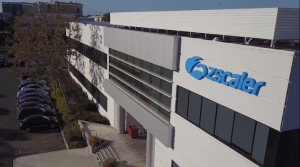Citrix Incubator Says the Science of Startups Gets Better
![]() In celebration of the 15 year anniversary for its IPO, virtualization solutions maker Citrix launched the Citrix Startup Accelerator on December 8, last year. Martin Duursma, VP of Citrix Labs and Chair of the CTO Office, was put in charge of the initiative, and they’ve since invested in 11 startups, matching well with their goal for 12 investments in their first 18 months.
In celebration of the 15 year anniversary for its IPO, virtualization solutions maker Citrix launched the Citrix Startup Accelerator on December 8, last year. Martin Duursma, VP of Citrix Labs and Chair of the CTO Office, was put in charge of the initiative, and they’ve since invested in 11 startups, matching well with their goal for 12 investments in their first 18 months.
Now that we’re edging 2012, it’s a good time to round up some of the achievements the incubator program has reached since launch, and look to next year for inspiring growth and innovation.
Early investments reflect Citrix’s focus on cloud, mobile
The first investment Citrix made through the Startup Accelerator was around the time the Cisco Networking Academy reached a milestone of its own. It injected an undisclosed amount into Primadesk, a cloud-powered file and data management app. The Primadesk investment was an important one, as it represents one of the major themes Citrix is focusing on with the Accelerator program, the cloud.
For Citrix, the cloud can be a confusing place if it’s not organized. Primadesk’s ability to help you organize documents and files in the cloud is an important step towards the way we use cloud services in the future.
![]() Mobile is another key area of development for Citrix, and this is reflected in some of Accelerator’s investments as well. “We’re all dealing with many applications because of consumerization with smartphones and tablets. How do you apply this in the enterprise?” John McIntyre asks. The Managing Director at Citrix’s Startup Accelerator, McIntyre has a few ideas to address the matter of mobile enterprise, starting with their interest in Core Mobile Networks.
Mobile is another key area of development for Citrix, and this is reflected in some of Accelerator’s investments as well. “We’re all dealing with many applications because of consumerization with smartphones and tablets. How do you apply this in the enterprise?” John McIntyre asks. The Managing Director at Citrix’s Startup Accelerator, McIntyre has a few ideas to address the matter of mobile enterprise, starting with their interest in Core Mobile Networks.
“When you get down to the small screen, you really struggle to get all the info you need. Core Mobile Networks was an investment this year. They’re pulling from your traditional business apps (i.e. Outlook, LinkedIn, Salesforce) into one interface on smartphones for iOS and Android, so you can get a quick look at all that stuff in a single interface.”
Citrix also invested in two other startups later on in August. One of these was Nukona, a maker of enterprise mobile device management software that lets admins setup internal app shops and apply corporate polices to individual apps. Another firm funded by Citrix was GridCentri, which offers a solution that reduces memory requirements in VDI deployments.
Another notable investment by Citrix this year was GlassHouse, a service provider with which the former established a strong relationship thanks to the capital injection.
For the long haul
Citrix founded the Accelerator program partially to give back to the startup community, but it plays an important role in the company’s vision in desktop virtualization, the social enterprise and the cloud. Among those important developments was the acquisition of IaaS provider Cloud.com, which strengthened the company’s position in this space in more ways than one. For one, Cloud.com has a strong link with OpenStack, and it already had an impressive client list at the time of acquisition.
It was difficult to pin down the Accelerator’s predictions for 2012, as McIntyre explains that they have a 5-year outlook for companies in which they invest. But as far as the Accelerator itself, the program hopes to support another 10 or so startups, continuing to look at companies that combine mobile and cloud. One notable update for the new year is the Accelerator’s goals to introduce some new products to market. And when it’s all said and done, Citrix remains invested in the Accelerator and all the potential behind its entrepreneurial spirit.
“As we’ve grown awareness and talked to other investors and incubators, there’s been talk in the investment world of frothiness in early-stage investing,” McIntyre explains. “There’s been a huge amount of investment in startup activity, and the worry is ‘are we in another bubble?’ Most of us feel it’s not analogous and so much has changed. There’s lots of room left in the current investment surge because smaller amounts of money [is being put] in more companies at early stage.
“There’s always going to be a fall out, but the science of doing a startup is getting better. VC’ will still tell you this–they look for the hot entrepreneur and smart people. In the past, there’s been a bit of mythology around this, that they were born that way. There’s some truth to people who are prone to take risk.”
Contributors: Maria Deutscher
A message from John Furrier, co-founder of SiliconANGLE:
Your vote of support is important to us and it helps us keep the content FREE.
One click below supports our mission to provide free, deep, and relevant content.
Join our community on YouTube
Join the community that includes more than 15,000 #CubeAlumni experts, including Amazon.com CEO Andy Jassy, Dell Technologies founder and CEO Michael Dell, Intel CEO Pat Gelsinger, and many more luminaries and experts.
THANK YOU









